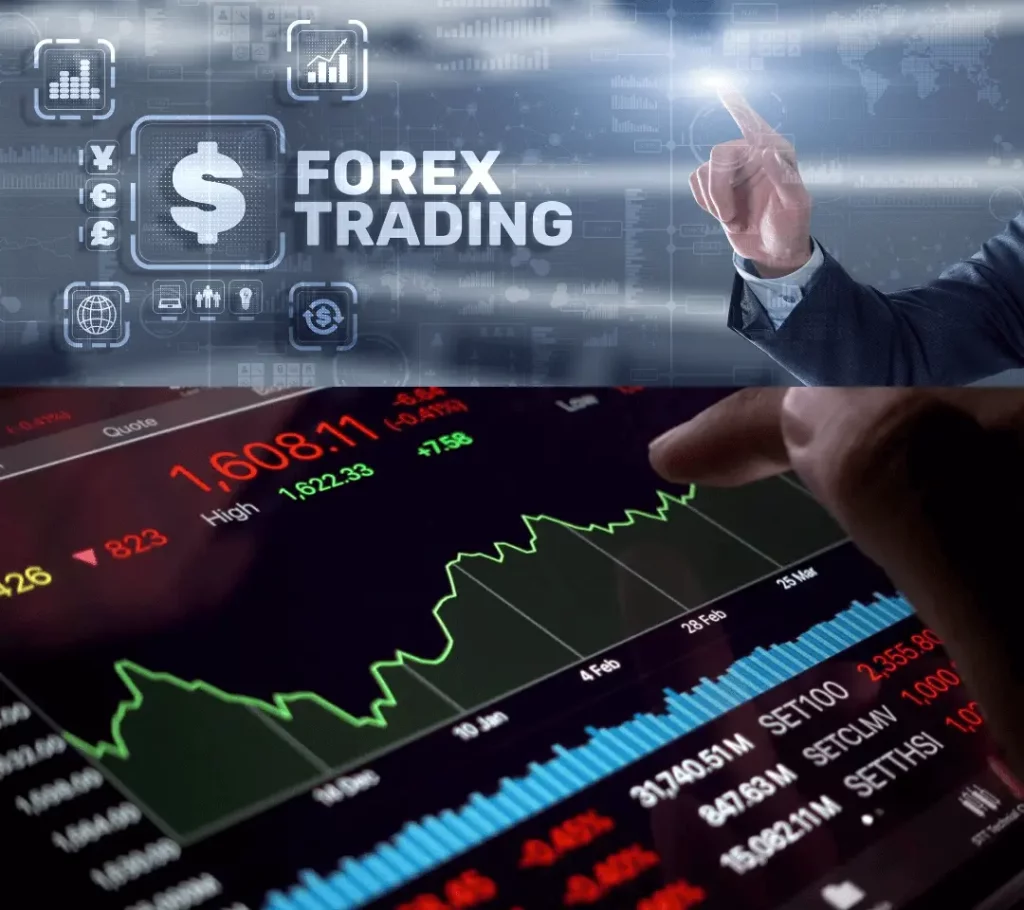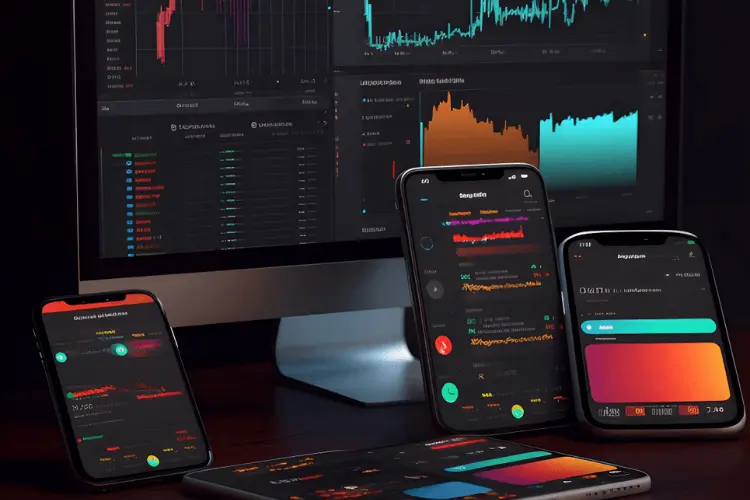Forex trading, foreign exchange or FX trading, transformsone currency into another. FX is one of the most busily traded markets in the world, with individuals, businesses and banks bringing out around $6.6 trillion cost of forex transactions daily.

This article will help you to explore forex trading, how it works, and the necessary measures to get started.
Understanding Forex Trading
What is Forex?
Forex trading is the purchasing and trading of foreign currencies to make a gain. Forex is traded 24 hours a day, five days a week across banks, organizations and personal traders worldwide. Unlike other economic markets, there is no centralized marketplace for Forex. Currencies trade over the counter in whatever market is available at that time. To facilitate Forex trading, traders should consider using a forex trading app as it would make trading more accessible anytime and anywhere.
How Does Forex Trading Work?
Forex trading is enabled through a network of financial institutions, including banks, brokers, and market makers. Traders can access the market through trading platforms provided by brokers. When you buy a currency pair, you go long on the first and short on the second.
The Basics of Forex Trading
Currency Pairs
When trading Forex, you exchange one currency’s value for another. In addition, you will always purchase one currency while dealing with another simultaneously. Because of this, you will always trade money in a pair.
Exchange Rate
The market’s supply and demand decide the exchange rate for a particular currency. Changes in economic indicators and geopolitical events can cause fluctuations in exchange rates.
Bid and Ask Prices
The asking price is the lowest price a seller is willing to accept, the highest cost a consumer is ready to pay for a currency pair. The difference between the bid and ask prices is called the spread.
Getting Started with Forex Trading
Setting up a Trading Account
You must open a trading account with a reputable Forex broker to start trading Forex. Pick a broker with a user-friendly trading forum, competitive spreads, and reliable customer support.
Choosing a Reliable Forex Broker
Research different brokers and read reviews to ensure you select a broker with a good reputation. Look for one regulated by a recognized economic authority to assure the security of your accounts.
Practice with Demo Accounts
Before risking actual money, practice trading with a demo account. Demo accounts let you trade with virtual funds and get familiar with the trading platform and market conditions.
Essential Tools for Forex Trading
MetaTrader Platform
MetaTrader is a famous trading medium used by many forex traders. It offers various tools for technical analysis, customizable charts, and access to real-time market data.
Economic Calendar
Stay informed about upcoming economic events and their potential impact on the market using an economic calendar. Economic indicators like GDP, employment reports, and interest rate decisions can significantly influence currency prices.
Technical Analysis Tools
Use technical analysis instruments such as moving averages, trend bars, and oscillators to identify potential entry and exit points in the market.
Developing a Forex Trading Strategy
Fundamental Analysis
The fundamental analysis concerns analyzing economic indicators, government policies, and geopolitical affairs to predict currency movements. Interest rates, inflation, and political stability can influence a country’s currency value.
Technical Analysis
The technical analysis concentrates on historical price data and chart patterns to forecast future price directions. Traders use technical indicators to determine trends and potential reversals.
Risk Management
A vital aspect of any trading strategy is risk management. Set stop-loss and take-profit levels to determine possible losses and protect profits.
Placing Trades and Managing Positions
Market Orders
A market order is an education to buy or sell a money couple at the current market cost.
Limit and Stop Orders
Limit orders allow traders to buy below the current market price or sell above it. Stop orders help limit losses by triggering a market order when the price reaches a specified level.
Trailing Stops
Trailing stops adjust automatically as the price moves in favour of the trade, closing in profits while giving the trade room to grow.
Tips for Successful Forex Trading
Stay Informed About Market Trends
Keep updated with the latest information and market trends to make informed trading decisions.
Start with Small Positions
Begin with small position sizes to minimize risk while you are still learning.
Keep Emotions in Check
Emotions can lead to impulsive decisions. Stick to your trading strategy and sidestep decision-making based on anxiety or greed.
Common Forex Trading Mistakes to Avoid
Overtrading
Trading too repeatedly can lead to losses and increased transaction costs.
Ignoring Risk Management
It would help if you controlled risk to avoid considerable losses that may wipe out your trading capital.
Chasing Losses
Trying to recover losses by taking excessive risks can lead to even more significant losses.
Dealing with Forex Trading Risks
Volatility in the Forex Market
The forex market is famous for its increased volatility, meaning that currency prices fluctuate rapidly within short periods. Traders must be prepared for sudden market movements and use
risk management techniques to rescue their funds.
Leverage and Margin Calls
Forex trading usually involves leverage, allowing traders to hold more prominent positions with smaller capital. While power can boost profits, it also raises the risk of substantial losses. Traders must be cautious with their use of force and avoid overextending their positions.
Margin calls warn the broker that the trader’s account balance has dropped below the required margin level. If a trader fails to add more funds to meet the margin requirements, the broker may close out the trader’s positions to prevent further losses.
External Factors Affecting Currency Prices
External factors, including geopolitical events, economic reports, and central bank interventions, can influence currency prices. For instance, unexpected political developments or trade policy changes can significantly impact currency values.
Forex trading offers significant profit opportunities but comes with inherent risks. It’s crucial to trade Forex successfully, to have a solid knowledge of how the market operates, to develop a robust trading strategy, and to exercise disciplined risk management. By staying informed, continuously learning, and adhering to best practices, traders can increase their probabilities of success in the active world of forex trading.



